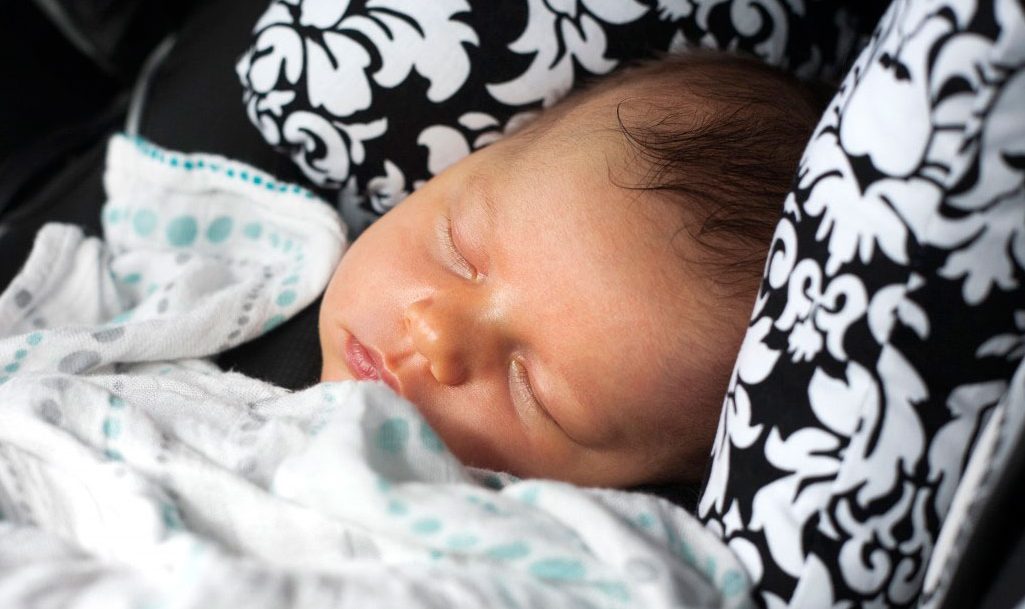Bringing Your Newborn Home

How to settle your nerves, and plan for life with a newborn.
After nine months of wondering, wishing, and anticipating, your baby is finally here.
Bringing baby home from the hospital is one of the most exciting – and nerve-wracking – moments for any new parent. The better you prepare for his arrival, the less frightening the drive home will be.
YOU MIGHT ALSO LIKE: 6 Ways to Keep Your Newborn Safe While She Sleeps
Find a pediatrician
Newborns need special care, which you’ll entrust to a pediatrician. Because you’ll have your first well-baby visit just days after you deliver, line up a doctor a few months before your due date. When choosing a pediatrician, take your time and do your homework. Ask friends, family members, and your ob/gyn for recommendations. Then, interview prospective doctors. Ask questions like:
- What is the doctor’s training and experience?
- Does he or she accept your health insurance?
- What are the office hours?
- Which hospital is the doctor affiliated with?
- Is someone on call after hours, in case of an emergency?
Also consider the doctor’s philosophy and bedside manner. Don’t stop looking until you find a pediatrician you trust. You should be completely comfortable with the person who will care for your newborn.
Install a car seat
A car seat isn’t an accessory – it’s a necessity. The hospital won’t let you bring your baby home without one. Buying an age-appropriate rear-facing seat is only the first step – the second is to install it correctly, which research finds most new parents fail to do. According to a study from Oregon Health and Science University Hospital, nearly all families made at least one critical error when installing their car seat. In most cases, the seat was too loose to adequately protect the baby.
To make sure your seat is installed correctly, have it inspected. You can find certified inspectors at your local fire station, or by searching online at http://www.seatcheck.org.
Getting baby ready
Provided your baby doesn’t have any significant health issues, you’ll bring her home after two or three days in the hospital. Before you go, the medical team will make sure she’s healthy and ready for the trip. “First they will want to see that the baby is able to breathe well and maintain her body temperature,” says Vinod K. Bhutani, MD, FAAP, professor of pediatrics at Lucile Packard Children’s Hospital at Stanford University School of Medicine.
Staff will also ensure your baby is eating well – whether from the breast or bottle — and producing at least three to four diapers per day. And, the doctor will check for jaundice – a yellowing of the skin and whites of the eyes that’s common in newborns. It’s caused by too much bilirubin, a yellowish pigment produced in the liver. Mild jaundice should clear up on its own within a couple of weeks. If it’s more severe, your baby may need to stay in the hospital for a few extra days.
When it’s time to leave the hospital, dress your baby for the weather – a t-shirt or short-sleeved onesie and light pants in warm temperatures, and warmer footie pajamas, a hat, and blanket in cold weather. Whichever outfit you choose should be easy-on, easy-off, to simplify dressing and undressing your baby.
Before you go home, ask the nurses about any baby care issues you’re uncertain about. Make sure you’re clear on feeding, burping, changing, and any medicines your baby might need. Also get the number of an after-hours nurse line (most hospitals have them) in case any unintended questions or issues pop up once you’re home.
At home
Being alone with your baby for the first time can be unsettling, to say the least. “It’s OK to be a little scared — the first week after babies are born is when they’re most vulnerable,” said Bhutani. Don’t panic, but do be vigilant for any changes that could signal a problem with your baby, such as redness or drainage around the belly button or circumcision area, poor feeding or lack of weight gain, fever, a drop in body temperature, lack of wet diapers, continuing jaundice, or uncontrollable crying or irritability.
Even if your baby seems perfectly fine, schedule a first visit with your pediatrician for soon after you come home. “Every baby needs to be seen by a pediatrician on day three, four, or five,” Bhutani said. “It’s a must.”
Updated:
August 31, 2023
Reviewed By:
Janet O’Dell, RN